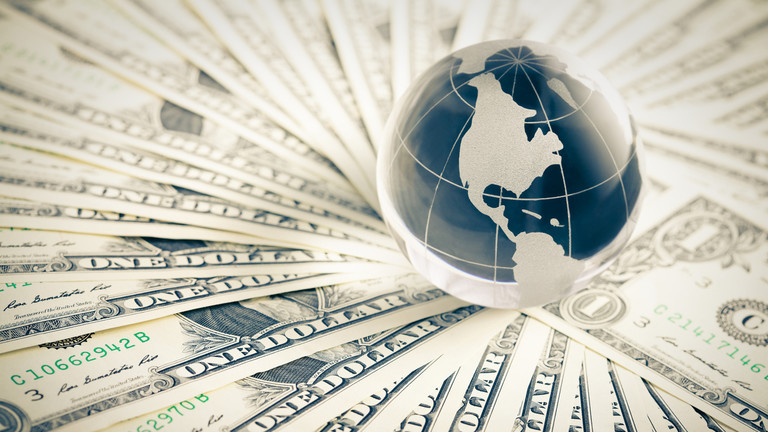Wall Street closed out a miserable September on Friday with the S&P 500′s worst monthly skid since March 2020, when the coronavirus pandemic crashed global markets.
The benchmark index ended the month with a 9.3% loss and posted its third straight losing quarter. It’s now at its lowest level since November 2020 and is down by more than a quarter since the start of the year.
The main reason financial markets continue to struggle is fear about a possible recession, as interest rates soar in hopes of beating down the high inflation that’s swept the world.
“Quite frankly, if it’s a deep recession you’re going to have to see more of a sell-off,” said Quincy Krosby, chief equity strategist for LPL Financial. “This is what the market is trying to navigate now.”
The Federal Reserve has been at the forefront of the global campaign to slow economic growth and hurt job markets just enough to undercut inflation but not so much that it causes a recession. On Friday, the Fed’s preferred measure of inflation showed it was worse last month than economists expected. That should keep the Fed on track to keep hiking rates and hold them at high levels a while, raising the risk of it going too far and causing a downturn.
Vice Chair Lael Brainard was the latest Fed official on Friday to insist it won’t pull back on rates prematurely.
“At this point, it’s not a matter of if we’ll have a recession, but what type of recession it will be,” said Sean Sun, portfolio manager at Thornburg Investment Management.
All told, the S&P 500 fell 54.85 points, or 1.5%, to close at 3,585.62 Friday, after flipping between small losses and gains in the early going. It has now posted a weekly loss in six out of the last seven weeks.
The Dow Jones Industrial Average dropped 500.10 points, or 1.7%, to 28,725.51. The Nasdaq composite slid 161.89 points, or 1.5%, to 10,575.62. The tech-heavy index sank 10.5% in September and is down 32.4% so far this year.
Smaller company stocks also had a rough September. The Russell 2000 ended the month down 9.7%. On Friday, it lost 10.21 points, or 0.6%, to 1,664.72.
Higher interest rates knock down one of the main levers that set prices for stocks. The other lever also looks to be under threat as the slowing economy, high interest rates and other factors weigh on corporate profits.
Cruise ship operator Carnival dropped 23.3% for the biggest decline among S&P 500 stocks after it reported a bigger loss for its latest quarter than analysts expected and revenue that fell short of expectations. Rivals Norwegian Cruise Line and Royal Caribbean Group slid 18% and 13.2%, respectively.
Nike slumped 12.8%, its worst day in more than 20 years, after it said its profitability weakened during the summer because of discounts needed to clear suddenly overstuffed warehouses. The amount of shoes and gear in Nike’s inventories swelled by 44% from a year earlier.
This year’s powerful surge for the U.S. dollar against other currencies also hurt Nike. Its worldwide revenue rose only 4%, instead of the 10% it would have if currency values had remained the same.
Nike isn’t the only company to see its inventories balloon. So have several big-name retailers, and such bad news for businesses could actually mean some relief for shoppers if it leads to more discounts. It echoed some glimmers of encouragement buried within Friday’s report on the Fed’s preferred gauge of inflation. That showed some slowing of inflation for goods, even as price gains kept accelerating for services.
Another report on Friday also offered a glimmer of hope. A measure of consumer sentiment showed U.S. expectations for future inflation came down in September. That’s crucial for the Fed because tightly held expectations for higher inflation can create a debilitating, self-reinforcing cycle that worsens it.
Treasury yields initially eased a bit on Friday, letting off some of the pressure that’s built on markets, but then turned higher by late afternoon.
The yield on the 10-year Treasury rose to 3.81% from 3.79% late Thursday. The two-year yield, which more closely tracks expectations for Fed action, rose to 4.23% from 4.19%.
Not all stocks took a beating in September. Biogen soared 35%, but it was an outlier. FedEx was among the market’s biggest losers, ending the month 29.6% lower.
Looking at the third quarter, which included a market rally in July, Netflix was among the best performers, climbing 34.6%. It’s still down 60.9% for the year.
A long list of other worries continues to hang over global markets, including increasing tensions between much of Europe and Russia following the invasion of Ukraine. A controversial plan to cut taxes by the U.K. government also sent bond markets spinning recently on fears it could make inflation even worse. Bond markets calmed a bit only after the Bank of England pledged mid-week to buy however many U.K. government bonds are needed to bring yields back down.
The stunning and swift rise of the U.S. dollar against other currencies, meanwhile, raises the risk of creating so much stress that something cracks somewhere in global markets.
Stocks around the world were mixed after a report showed that inflation in the 19 countries that use Europe’s euro currency spiked to a record and data from China said that factory activity weakened there.

 NEWS5 months ago
NEWS5 months ago
 NEWS5 months ago
NEWS5 months ago
 NEWS5 months ago
NEWS5 months ago
 WAR5 months ago
WAR5 months ago
 FINANCE5 months ago
FINANCE5 months ago
 INVESTMENTS5 months ago
INVESTMENTS5 months ago
 FINANCE5 months ago
FINANCE5 months ago


























